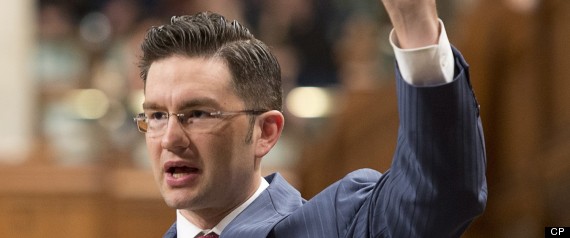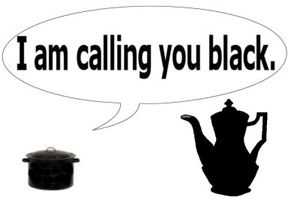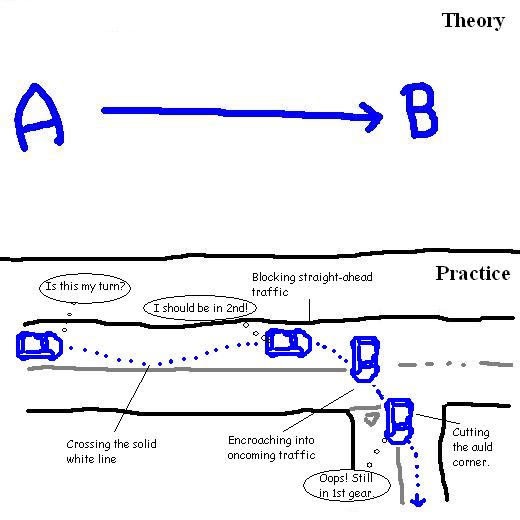Now, just think of the advantages polyculturalism must give us?
Learning to speak was the most remarkable thing you ever did. It wasn’t just
the 50,000 words you had to master to become fluent or the fact that for the
first six years of your life you learned about three new words per day. It was
the tenses and the syntax and the entire scaffolding of grammar, not to mention
the metaphors and allusions and the almost-but-not-quite synonyms.
But you accomplished it, and good for you. Now imagine doing it two or three
times over — becoming bilingual, trilingual or more. The mind of the polyglot is
a very particular thing, and scientists are only beginning to look closely at
how acquiring a second language influences learning, behavior and the very
structure of the
brain itself. At a
bilingualism conference last weekend convened by the
Lycée Français de New York, where all students
learn in both English and French, language experts gathered to explore where the
science stands so far and where it’s heading next (disclosure: my children are
LFNY students).
Humans are crude linguists from the moment of birth — and perhaps even in the
womb — to the extent at least that we can hear spoken sounds and begin to
recognize different combinations language sounds. At first, we don’t much care
which of these phonemes from which languages we absorb, which makes sense since
the brain has to be ready to learn any of the world’s thousands of languages
depending on where we’re born.
“Before 9 months of age, a baby produces a babble made up of hundreds of
phonemes from hundreds of languages,” said Elisabeth Cros, a speech therapist
with the Ecole Internationale de
New
York. “Parents will react to the phonemes they recognize from their native
tongues, which reinforces the baby’s use of those selected ones.”
Doubling down on a pair of languages rather than just one does take extra
work, but it’s work young children are generally not aware they’re doing.
Bilingual people of all ages are continually addressing what research
psychologist Ellen Bialystok of Toronto’s York University calls the
dog-chien dilemma, encountering an object, action or concept and
instantaneously toggling between two different words to describe it. Such nimble
decisionmaking ought to improve on-the-fly problem solving, and studies show
that it does.
Language researchers often point to the famed
Stroop
test, which asks subjects to look at the word
red, for example,
which is presented in an ink of a different color, say blue. Then they are
required to say aloud or identify on a computer the ink color. That requires an
additional fraction of a second to accomplish than if both the word and ink
color were the same. Everyone experiences that lag, but for bilinguals it’s
measurably shorter. “Monolinguals always need more time,” Bialystok says. “It’s
a lifelong advantage for bilinguals.”
Excelling on the Stroop test is hardly a marketable skill, but what it
suggests about the brain is something else. Sean Lynch, headmaster of the LFNY,
previously worked in a multilingual school in France in which all of the
students spoke French and at least one of 12 other languages, including
Japanese, Russian, Italian and Spanish. As is often the case with well-endowed
schools, the students, on average,
outperformed their age peers academically, and it’s impossible to determine how
much of that is due to native skill and how much to the fact that they simply
have access to better teachers, books and other resources. Still, Lynch observed
that these students seemed to show a greater facility with skills that relied on
interpreting symbolic representations, such as math or music.
Lynch also believes — albeit based primarily on his own observations — that
multilingual kids may exhibit social empathy sooner than children who grow up
speaking only one language, which makes developmental sense. The theory of mind
— understanding that what’s in your head is not the same as what’s in other
people’s heads — does not emerge in children until they’re about 3 years old.
Prior to that, they assume that if, say, they know a secret you probably do too.
There’s a kind of primal narcissism in this — a belief that their worldview is
the universal one. Once they learn that’s not the case, self-centeredness falls
away — at least a little — and the long process of true socialization begins.
There’s nothing that accelerates the acquisition of that kind of other-awareness
like the realization that even the very words you use to label the things in
your world — dog, tree, banana — are not the same
ones everyone uses.
Preliminary imaging work suggests that the roots of this behavior may even be
visible in the brain. Some studies, for example, have shown a thickening of the
cortex in two brain regions — most importantly the left inferior parietal, which
helps code for language and gesturing. Bialystok is not entirely sold on these
studies, since she would expect the greatest differences to be in the frontal
lobes, where higher functions such as planning, decisionmaking and other aspects
of what’s known as executive control take place. Some of her own work has found
an increase in white matter — the fatty sheathing that insulates nerves and
improves their ability to communicate — in the frontal regions of bilinguals,
suggesting denser signaling and complexity of functions in these areas.
“Structural differences are where the new science is really unfolding,” she
says. “That work will reveal a lot.”
Not every study out there finds benefits to bilingualism. Earlier this year,
psychologists at Concordia University in Montreal studied 168 children ages 1
and 2 years old being raised by bilingual parents. In general, they found that
the kids in the younger half of that cohort had smaller comprehension
vocabularies — the number of words they appeared to understand — than kids being
raised monolingual. The older half of the sample group had smaller production
vocabularies — or words they could pronounce. This results, the researches
believe, from parents mixing their languages when speaking to their kids,
choosing the words they feel the children will have an easier time understanding
or reproducing. That in turn leads to what linguists call code-switching — a
commingling of tongues by the children that produces what Americans call
Spanglish or Franglish when Spanish or French melded with English (this
particular study produced more complex comminglings, since it included kids
speaking German, Japanese and Farsi as well). However, Bialystok agrees that
this is a short-term disadvantage of bilingualism, and says in most cases the
kids catch up.
And when they do, language skills acquired early can pay late-life dividends.
In one study, bilinguals experienced the onset of age-related dementia 4.1 years
later than multilinguals, and full-blown Alzheimer’s 5.1 years later. “One
school of thought says that any cognitive reserve — education, multilingualism,
even playing Sudoku puzzles — strengthens the brain and helps it resist
disease,” says Bialystok. “The other says that the brains of multilinguals
experience the same level of disease as those of monolinguals, but they cope
with it better. They function at a higher level than they would otherwise be
able to function.”
In another 2013 study, this one from the University of Kentucky, bilingual
and monolingual people in the 60- to 68-year-old age group underwent brain scans
while performing a cognitive task that required them to switch back and forth
among several different ideas. Both groups performed the task accurately, but
bilinguals were faster as well as more metabolically economical in executing the
cognitive mission, using less energy in the frontal cortex than the
monolinguals.
The very fact that something as simple as working with puzzles or having once
got a good education can improve brain function does prove that multilingualism
is not the only path to staying cognitively healthy in your dotage. And plenty
of monolinguals do perfectly well at acquiring empathy and social skills early
in life. Still, there are roughly 6,500 spoken languages in the world. There
must be a reason our brains come factory-loaded to learn more than just
one.

 The Public is becoming conscious of the games being played with them; we're cluing in to our collective stake in The Ultimate Game that is politics.
The Public is becoming conscious of the games being played with them; we're cluing in to our collective stake in The Ultimate Game that is politics.














